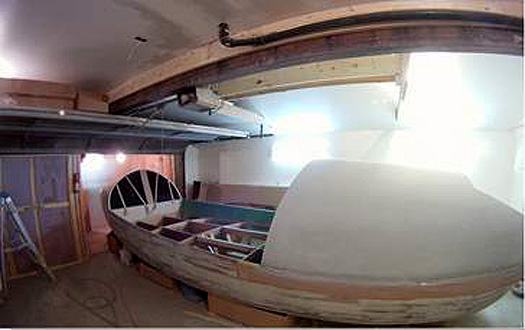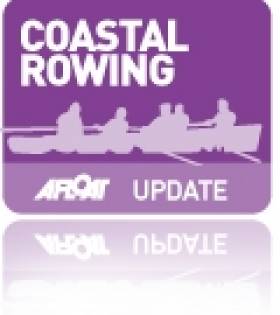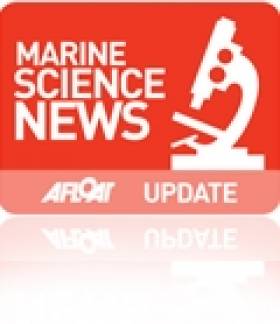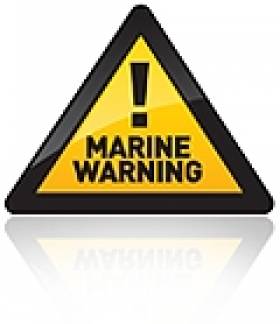Displaying items by tag: Explorer
Global wind and solar company, Mainstream Renewable Power today announced its sponsorship of a rowing expedition attempting a world first through the infamous Northwest Passage in the Canadian Arctic this summer. Three experienced Irish adventurers and one Canadian are attempting to become the first ever people to cross the 3,000 km passage by human power alone in a single season – a feat which is only possible due to the melting ice which normally renders it impassable.
Irishmen Paul Gleeson, Denis Barnett and Kevin Vallely along with Canadian Frank Wolf will set off from Inuvik in the North West Territories on the first of July in their 25ft long customized rowing boat "The Arctic Joule". The four men will row in continuous shifts 24 hours a day, seven days a week as the route will be in constant daylight for the majority of the journey which is expected to take two to three months, ending at Pond Inlet in Nunavut.
Eddie O'Connor, Chief Executive of Mainstream Renewable Power said: "Mainstream is proud to sponsor this expedition because it draws attention to the disasters of global warming. The expedition can only happen because the polar ice caps are melting at an alarming rate. The melting of the permafrost and the release of methane hydrate is perhaps the biggest single calamity that mankind faces and it's all down to human-induced global warming. This expedition allows us to demonstrate to the world that there is an answer to global warming. We don't have to do without electricity. We can have our electricity supplied by renewable sources.
He continued: Just last month, World Bank President Jim Yong Kim said that if we have any hope of keeping climate change below two degrees Celsius, the peak year of carbon emission has to be 2016. I hope this expedition will show world leaders that we need to act now."
This announcement comes as EU Environment Ministers met at Dublin Castle last week to discuss a range of important environmental and climate issues as part of the Irish Presidency agenda.

The rowing boat for the passage under construction
Speaking about the expedition Paul Gleeson said: "We are very pleased that such a successful, Irish renewable energy company with a global presence feels as passionately about this as we do. It wasn't long ago that the Northwest Passage was the sole domain of steel-hulled ice-breakers. We hope by making this traverse completely under human power in a row boat, without sail or motor, in a single season we will be able to demonstrate first-hand the profound affects climate change is having on our world."
The Northwest Passage is a route through the various islands of the Canadian archipelago which over the years has witnessed some incredible tales of courage, disaster and hardship. In 1845, fellow-Irishman, Francis Crozier from County Down joined Sir John Franklin on the same expedition in the HMS Terror, an expedition which ended in disaster and to this day remains unsolved.
'The Sea: One of Ireland's Greatest Natural Resources' - Coveney
The Minister was speaking during a visit to the Marine Institute's research vessel, RV Celtic Explorer, on its return from a mission to the Labrador and Newfoundland Seas.
He added "I am particularly pleased that this is my first official engagement as Minister for Agriculture, Marine and Food. The work of the RV Celtic Explorer highlights the essential nature of marine research, development and sustainable management, through which Ireland is developing a strong and well-deserved reputation as an emerging centre of excellence, where we have prominent roles in many European and international marine science bodies."
Minister Coveney commended the Marine Institute and its Chief Executive, Dr Peter Heffernan, for its leading and proactive role in the areas of fisheries science, marine environment and food safety as well as ocean science and said that he looked forward to working closely with the Institute and benefitting from the research and advice which they would undertake and provide.
The Minister noted that Ireland's two national research vessels – RV Celtic Explorer and RV Celtic Voyager – will record 267 days at sea during 2011, during which they will be engaged in fisheries surveys, underwater mapping, climate studies and deepwater surveys.
Shackleton Exhibition's Photo ‘Polar’ Prize
To celebrate the achievements of Shackleton and Hurley's stunning photographic collection, the (MMM) want you to share your photos of spectacular scenery, unusual locations and far-flung destinations. Just add them to the Flickr group to be in a chance of a family concert ticket for the Royal Liverpool Philharmonic's unique combined film and music experience 'Polar'.
The cinematic portrait of the Arctic and Antarctic explores the homeland of the polar bears and humpback whales. The moving imagery will be accompanied by a live orchestral soundtrack performed by the world-renowned orchestra.
For further detailed information about the competition and entry rules logon HERE.
The Endurance: Shackleton's Antarctic Adventure at the Merseyside Maritime Museum is open to the public free of charge until the 27 February 2011. For more info logon HERE
Dun Laoghaire Yacht Theft - Watch Out, Thieves About!
The boating community has been alerted to a recent theft from a boat at Dun Laoghaire marina. Boaters have been asked to keep an eye out for 'suspicious characters purveying marine equipment.
It is understood a 54ft yacht was broken into on Dun Laoghaire marina at some stage on Sunday 3rd or Monday 4th. The person(s) in question took a number of items, including 6in. and 12in. Navman Plotters, 2 Icom Handheld VHF's, power and hand tools, a 10 inch lcd Monitor, Helly Hansen oilskins, safety equipment, a marine pc and possibly other items that have just not been noticed missing yet.
Obviously the thief(s) in question knew what they were doing, and it has been described as a "slick and thorough job".
If anyone has any information about this incident, please contact Dun Laoghaire Garda Station: tel; 01 666 5000


























































